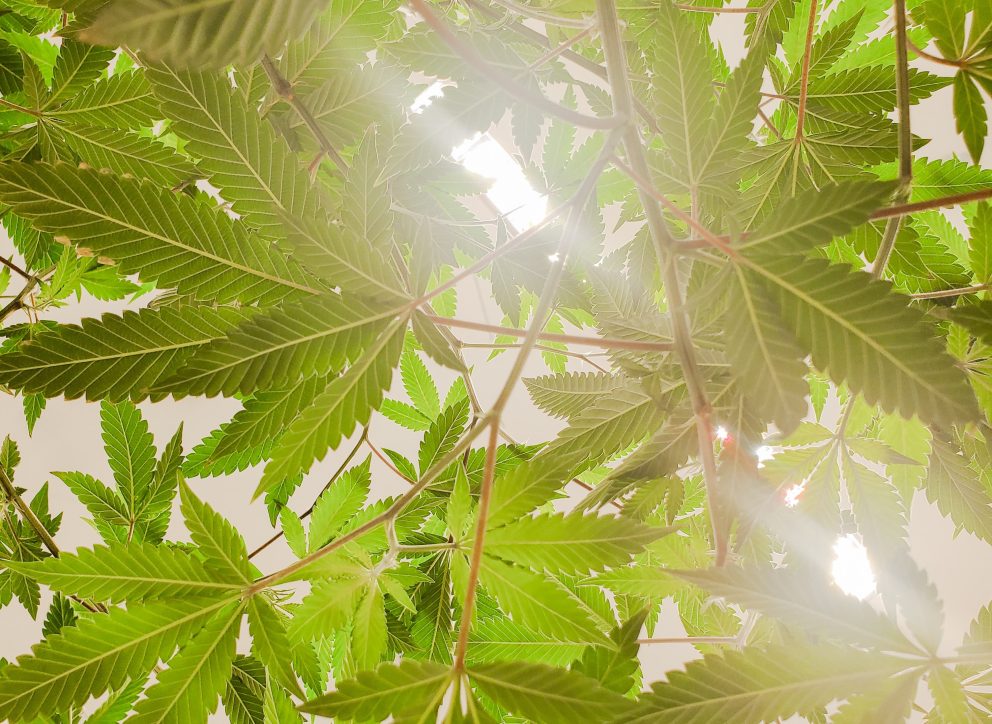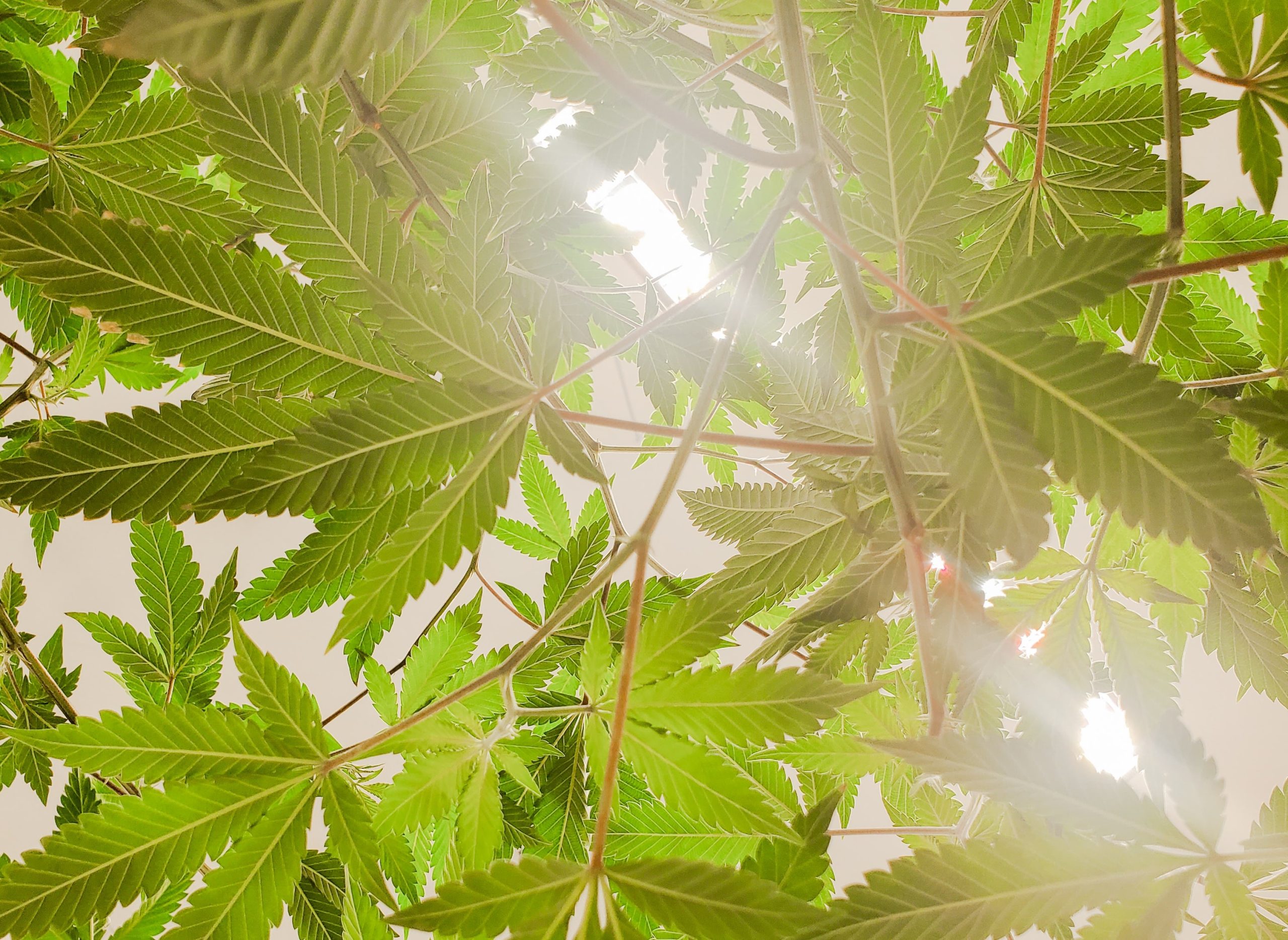
Photo by Teanna Morgan on Unsplash
The excitement over medical marijuana combined with a hungry market for cannabis products has launched a gray market of not-quite-legal cannabis products. Laws have been somewhat murky leading to products legal on the state level but not federally, and some federally legal products outlawed by some states.
These laws can change in an instant. The DEA has recently changed the classification of different versions of THC-O. THC-O, both delta-8 and delta-9 have been officially reclassified as an illegal controlled substance. Is Delta-8 THC also illegal?
Cannabis plants with minute levels of THC became legally defined as hemp. This opened up an entire market of products with cannabinoids synthesized from that hemp. The current legal gray area has allowed for different psychoactive cannabinoids to become available somewhat legally.
Given cannabinoids all come from one mother cannabinoid, CBG, different cannabinoids can be synthesized from legal hemp. Using different chemical processes, you can create THC and other cannabinoids.
Delta-8, delta-10, HHC, and THC-O are all psychoactive cannabinoids similar to THC with different psychoactive properties. How legal are these products? Are there any problems with them? This post will give you the general lay of the land of the confusing laws and where they stand on these substances.
Is Delta-8 THC Legal?
As of now, delta-8 THC that has been cultivated from hemp is legal on the federal level. In a recent court case, a panel of the U.S. Court of Appeals for the Ninth Circuit ruled that despite its psychoactive properties, delta-8 THC is still legal.
Judge D. Michael Fisher wrote, “Regardless of the wisdom of legalizing delta-8 THC products, this Court will not substitute its own policy judgment for that of Congress…if Congress inadvertently created a loophole legalizing vaping products containing delta-8 THC, then it is for Congress to fix its mistake.”
Sharp words aside, they upheld that delta-8 is legal. While delta-8 is a milder form of THC, there is a wild west of semi-legal cannabinoids on the market. These products do not face the same regulation or rigorous testing as legalized and medical marijuana.
This lack of testing and regulation means the chemicals used to convert the cannabinoids from legal hemp into delta-8 can have chemical remnants from the conversion process. This can expose people to toxic chemicals. With the freedom to enter the market and lack of oversight many issues can slip through the cracks.
Delta-8 products being federally legal puts them in a strange position. Their federally legality means delta-8 products can be sold more widely like alcohol or cigarettes and they can even be sold and transported by mail.
[fl_builder_insert_layout id=13138]
Different states can, and have, taken issue with these products. They have passed laws directly regulating these products or making them illegal.
Why Is Delta-8-THC Legal?
It can sound a bit illogical that natural THC from cannabis is illegal but psychoactive cannabinoids like delta-8 made from hemp are legal. The 2018 Farm Bill legalized the growth and cultivation of cannabis plants that contain less than .3% THC.
This law also legalized any products cultivated from that hemp. A letter from the DEA and the ruling by the Ninth Circuit Appeals court reiterated this fact. Despite the intoxicating effects of delta-8 and reports by the FDA of negative experiences and even occasional poisoning from delta-8 products, they are still legal if they are made from hemp.
The ruling by the appeals court was related to a debate over the trademark and counterfeit claims over delta-8 THC products. The debate was that these charges were invalid on the grounds that delta-8 THC was federally illegal. This ruling helped reaffirm the federal legal status of delta-8. However, not all states feel the same.
Where is Delta-8-THC Illegal?
Even in some states where cannabis is legal for medical or recreational use, states have felt differently about the legality of delta-8 products. Some states have selected to criminalize or regulate these products since, given their legal status, they can be so widely available and even potentially exposed to children.
As of 2022, Delta 8-THC is illegal in 15 states:
- Alaska
- Arizona
- Colorado
- Delaware
- Idaho
- Iowa
- Montana
- New York
- Nevada
- North Dakota
- Oregon
- Rhode Island
- Vermont
- Utah
- Washington
Delta-8-THC is regulated in California and Minnesota and other states as well. Their goal being to limit the widespread access to products that may have entered the market without adequate preparation and provide potential exposure to harmful chemicals.
Is Delta-8 Synthetic?
Delta-8 THC is a cannabinoid that can be naturally found in cannabis but in pretty trace amounts. In order to get enough to use in products, it is synthesized from legal cannabinoids obtained from hemp, often CBD.
The issue is this process of creating delta-8 often involves using harmful chemicals that can leave chemical remnants. Without regulations, anyone can technically dip their hat into the delta-8 market and potentially release products that can make users sick.
It can be hard to regulate the emerging cannabinoid market. Recently, the FDA has stated its current framework for CBD is not appropriate and requires some changes. It hopes to work with Congress to find a clearer path to regulating cannabinoid products.
Is Delta-8-THC-O Legal?
A letter by attorney Rod Kight to the DEA requested clarity about the legal status of delta-8 and delta-9 THC-O. The noted cannabis attorney included his concerns about the potential for these products causing health issues.
The answer to Knight’s question shifted the laws regarding delta-8 and delta-9 products containing THC acetate ester (THC-O). These products have now been classified by the DEA as Schedule I controlled substances. This means that they are illegal to sell or possess.
The difference between delta-8 THC and delta-8 THC-O is that delta-8 THC exists naturally in THC. Being man-made, THC-O products do not naturally exist in cannabis or hemp so their creation is not protected even if they are made from legal hemp.
The argument is that if they don’t exist in cannabis/hemp that they are not protected by the Farm Bill. Delta-8-THC-O has potential for major health issues. Vaping has been shown to be toxic so it is not surprising that these products are no longer legal.
Is Delta-9 THC Legal?
Delta-9 THC is what we know as traditional THC. It’s the one cannabinoid that is definitively illegal and has driven much of the legal debate of cannabis for ages. Even with the 2018 Farm Bill, delta-9 is illegal.
The THC that distinguishes hemp from cannabis is delta-9 THC so it’s important to remember that delta-9 THC is not legal. In states where medical and/or recreational cannabis are legal, delta-9 THC is legal on the state level. However, it remains federally illegal.
Is Delta-9 THC Synthetic?
Traditional delta-9 THC is natural. However, given the market share of products made from legal hemp, one can technically synthesize delta-9 THC from legal hemp. Different chemicals can be used to convert cannabinoids into delta-9 THC.
There are products creeping up and confusing delta-9 legality, it offers technically “legal” delta-9 THC that’s made from legal CBD or extracted from hemp. Technically, synthetic delta-9 THC does exist in the world, however, most delta-9 THC is natural.
Marinol a.k.a. Dronabinol is another form of synthetic delta-9 THC that has been made by pharmaceutical companies to treat extreme nausea. Its synthetic nature does affect patients differently than traditional THC. Without other cannabinoids and terpenes creating the entourage effect it can feel more intense or cause anxiety in patients.
Is Delta-9-THC-O Legal?
Like with delta-8-THC-O, delta-9 THC-O is also illegal under the grounds that it is a Schedule I controlled substance. This means that delta-9-THC-O is illegal to sell or possess.
Photo by Sora Shimazaki
Is Delta-10 THC Legal?
Delta-10 THC which is a cannabinoid with milder psychoactive effects is legal on the federal level. Like delta-8 it’s legal under the grounds of hemp-made products based on the 2018 Farm Bill. It’s an isomer of traditional delta-9 THC but can be cultivated from CBD oil.
While Delta-10 is legal on the federal level, it’s been outlawed in:
- Alaska
- Arizona
- Arkansas
- Colorado
- Delaware
- Idaho
- Iowa
- Mississippi
- Montana
- Rhode Island
- Utah
Is Delta-10 THC Synthetic?
Delta-10 was discovered accidentally when cannabis company Fusion Farms found cannabis contaminated with chemicals and developed strange crystals. When they reversed engineered those crystals they discovered a way to cultivate delta-10.
The delta-10 THC on the market is synthetic.
What Is THC-O?
THC-O is short for THC-O-acetate, THC-O is delta-8 or delta-9 THC that have been exposed to acetic anhydride. It boasts 3 times the potency of traditional delta-9 THC. However, it functions completely differently.
Acetic anhydride is a highly flammable chemical when combined with legal CBD, delta-8 THC, or traditional delta-9 THC it can cultivate THC-O. These acetates can be very dangerous while they are also dangers in using a man-made chemical as there hasn’t been adequate study about the long term health effects of prolonged usage.
Is THC-O Legal?
The changes to the law by the DEA have made THC-O illegal on the federal level. Cannabinoid acetates popped up in this wild market of synthetic cannabinoids. However, they are insanely dangerous to vape. This honestly may have been the nail in the coffin of THC-O legality.
Heating THC-O and any acetates create ketene which can cause lung damage, even with mild exposure. This means smoking any form of THC-O the way you would smoke weed could put you at risk of irreparable lung damage and other health risks.
Enough studies into the dangers of vaping THC-O have helped drive this decision. The heating of any acetate chemical like the vitamin-E acetate in some e-cigarettes has been linked to EVALI, which is a lung issue that’s even been shown to cause death.
Final Thoughts
The FDA is giving new thought and guidance to how it will approach cannabis and cannabinoid products in the future. People clearly want cannabis and many put faith in its medicinal properties. And yet, the US government is slow to consider legalizing it on the federal level.
There are only about four states that have not legalized some form of cannabis. States have already established regulations for understanding cannabinoid levels, dosages, and testing parameters for impurities.
And yet, a congressional loophole has allowed for a growing market of products of not-quite-cannabis products that while federally legal, may prove to be problematic for your health.
The DEA’s choice to make THC-O a controlled substance is one step in closing this wild market of synthetic cannabinoids that have not been studied or have been regulated.
To get access to legal cannabis in your area, consider applying for your medical marijuana card.


